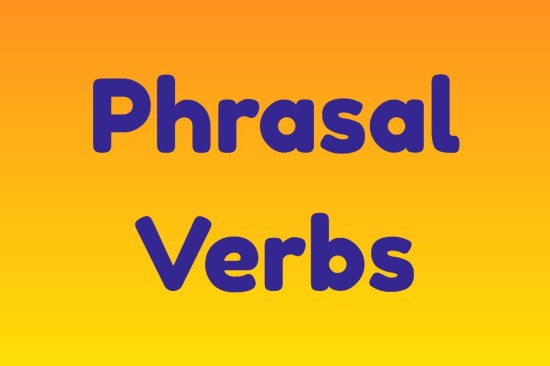Common Phrasal Verbs

Particles Don’t Just Occur in Physics
For example, “count on” is phrasal, but “on” is not a preposition in this context. It’s a particle. Why? Because if I say, “I can count on you every day,” I am not saying that I use your body to do my counting – not unless we’re really close friends and like to do silly things together. So when “on” is paired with “count,” a new meaning is created. The phrasal verb is actually an idiom, a special way of expressing an idea that is not literal.
The meaning of this sentence should be clear. I am stating that you are reliable and trustworthy, and every day I know what to expect from you. That’s what “count on” indicates.
Another phrasal verb is “break up.” If you look at the literal meaning of the two parts, you might think it means to break an object into pieces. But when you use the words as a phrasal verb, you create a new meaning:
“I broke up with my girlfriend after 10 years because she wanted to marry a rich guy.”
Poor me – and yes, I really am poor because she preferred a man with lots of money. Can you see what I’m saying here? I ended my relationship; I “broke up” the boyfriend-girlfriend bond. This is a very common usage of “break up” (and it’s in the past tense because it already occurred). But it’s not the only meaning of this verb. See this example:
“The students broke up when their teacher spilled milk all over his shiny new suit.”
What do you think they did? Did they rush to help him clean it off? Did they feel sad? No way: not those cruel students. They laughed! So here’s a second meaning of “break up.” It’s much less common than the first meaning, but you will see it, especially in American English. Since the two meanings are very different, it’s easy to tell which one is being used from the context it’s in. With a little experience, you can get used to phrasal verbs with multiple definitions.
Can You See the Phrasal Verb in This Sentence?
“I got away with looking in my textbook for answers while I took the test.”
Is it “got away”? Not quite. The phrasal verb is actually “got away with,” so it has three parts. Occasionally, you will see a phrasal such as this, but as stated above, they are generally two words. This is a great example of how to use “got away with,” because it means to do something (that’s not very good) without being caught or punished. At the same time, this is not a recommended action. I am clearly a lazy student who doesn’t want to study. I promise to improve. Here are two more sentences:
- “I don’t want to run into him by accident at the concert.”
- “Let’s shop around to see which computer gives us the best value.”
Did you see the phrasal verb in the first sentence? It is “run into.” It’s simple to identify it. However, the second sentence has three verbs: “shop,” “to see” and “gives.” Where’s the phrasal one? It must be “shop around.” It’s the only one with a particle. “To see” is an infinitive. If you reverse it and write “see to,” you have another phrasal verb. So to identify a phrasal verb, always look for the verb first and the particle second (and third, in some cases).
A List of Common Phrasal Verbs
- Bring up
- Bring on
- Call on
- Call off
- Cheer on
- Cheer up
- Come up
- Come in
- Cut off
- Cut (something) out
- Cut in
- Drop by/in
- Drop off
- Fall apart
- Fill (someone) in
- Get away
- Get along with
- Get up
- Get back to
- Get back at
- Give out
- Give in
- Give away
- Give up
- Go out with
- Go ahead
- Grow up
- Grow apart
- Hang on
- Hang out
- Hang up
- Hold on
- Hold back
- Log in (to)
- Log out
- Look up
- Look out
- Pay back
- Pay for
- Put out
- Put on
- Take off
- Take out
- Turn on
- Turn off
- Turn around
- Turn up
- Work out
- Work (something) out
